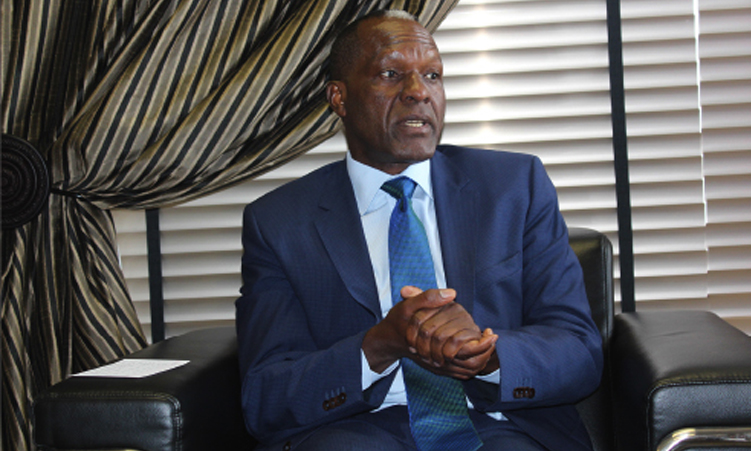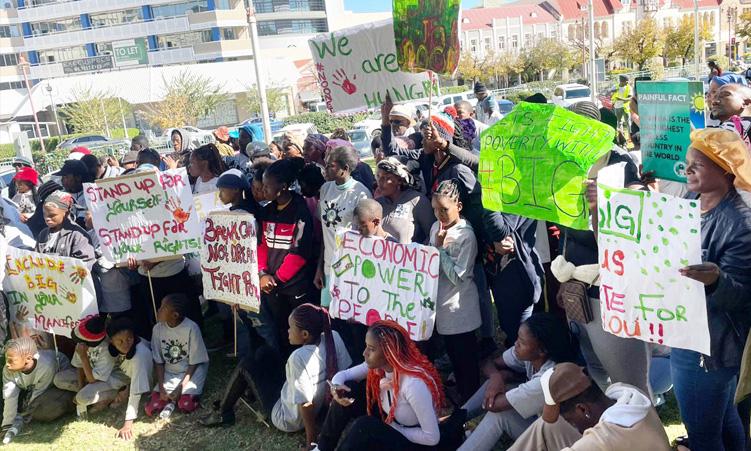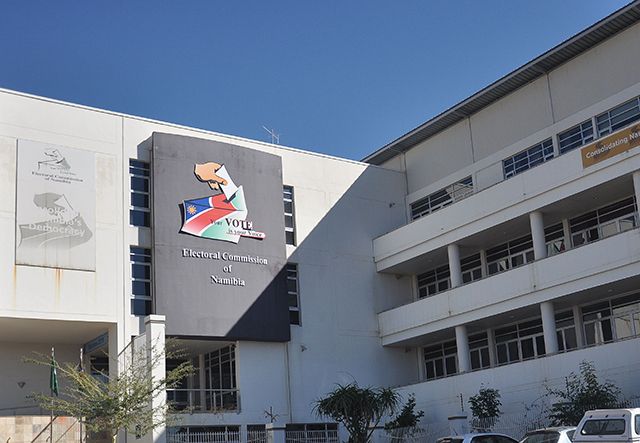… Alweendo told to take action
Oil companies are using Namibian citizens as fronts for local participation, says mines and energy minister Tom Alweendo.
“Disappointingly, I have learnt that some oil industry players are merely fronting Namibians in positions,” Alweendo said at the oil and gas conference in Windhoek yesterday.
According to Alweendo, some companies are also reluctant to hire Namibian citizens.
“The government expects all our oil industry players to be transparent and fair in their recruitment processes,” he emphasised.
He called on all companies to provide equal opportunities to Namibians in terms of securing employment.
“Ideally, all vacant positions should be advertised in the local media to ensure Namibians who meet the minimum requirements from all corners of the country have equal employment opportunities.”
On Tuesday, the mines ministry announced that it is fast-tracking its local content policy to ensure Namibians benefit from natural resources, including oil.
Alweendo said international oil companies should procure goods and services from local suppliers as far as possible.
“We expect international oil companies, both petroleum licence holders and service providers, to play a critical role in the capacity building of Namibians,” he added.
Speaking during the conference, Sonangol Integrated Logistic Services strategy and corporate governance manager Pedro Oliveira said there is much Namibia can learn from Angola.
He called for increased investment in people.
“Namibia will need some time to get people ready to take over the industry,” said Oliveira.

He said investment in infrastructure is also needed.
“Angola is investing in refineries and gas plants. One of the questions that should be asked is if there is a need for Namibia to invest in a refinery.”
Oliveira added that the country should aim to learn from other African countries that have been in the industry for long.
United Democratic Front spokesperson Mabasen Narib says Alweendo’s remarks indicate that he is incapable of establishing the required legal frameworks to ensure the oil and gas sector operates like other industries.
“Other countries have issues with blood diamonds, but that has never been the case in Namibia. What is the hidden agenda with oil and gas? First the late president said the oil does not belong to us and now the minister, who was appointed by him, is trying to scare the nation about the oil curse,” he says.
Narib highlights that it’s Alweendo’s duty as a lawmaker to ensure legal frameworks are in place to prevent this from happening.
“Countries in the Middle East have transformed their countries through oil discoveries. Why can’t we focus and channel our energy towards learning how we can utilise this resource to change the fortunes of Namibians?”
Narib says the nation wants to know how the discovery of oil will ease the burden of unemployment and economic hardship in Namibia.
“There is no place for inappropriate and unacceptable comments like this at this particular time,” he adds.
South West Africa National Union (Swanu) secretary general Wendy Christian says it’s disheartening to hear a minister imply that the Namibian people are responsible for the mess.
“The minister must rather seek to explore avenues to change the legislation in place, to make it easy for Namibians to own shares in such companies, especially its workers,” she adds.
Christian says Swanu’s manifesto will push for Namibia’s natural resources to be nationalised.


Independent Patriots for Change spokesperson Immanuel Nashinge says leaders should treat the country’s resources like a national heritage.
“Alweendo’s warnings about the oil curse smell as fishy as Swapo’s management of our marine resources. For years, they’ve turned our abundant waters into a sea of corruption, with quotas handed out like party favours to political cronies. Our fishing industry, which should be feeding the nation, has instead become a case study in how to gut a vital sector for the benefit of a chosen few,” he says.
Nashinge asserts that Namibia doesn’t need more warnings from Swapo.
“We need a complete overhaul of how we manage our resources. Look no further than Namcor to see the oil curse already taking root. It is not a warning. That is the plan. Clearly, that is how they want it to be. In their world, Namibians should remain beggars and poor until their Jesus comes,” he says.
Nashinge claims Alweendo’s words are nothing but hot air.
“Full of inefficiencies and mismanagement that are bleeding potential revenue dry faster than a punctured pipeline. If this is the current administration’s idea of preparing for oil wealth, they’re not just inviting the resource curse – they’re rolling out the red carpet for it,” he adds.
Meanwhile the Bank of Namibia says its exchange control policies are favourable for foreign investors in the oil and gas industry.

Kazembire, Zemburuka, the central banks spokesperson, says the country’s exchange control policies are crafted to support the oil and gas sector by creating a conducive environment for foreign direct investment.
“The legislative framework aims to balance investment facilitation with the smooth operation of economic activities in this critical sector,” he says.
According to the policies, foreign investors have the flexibility to introduce and externalise their funds through commercial banks.
This means they are allowed to bring their money into and out of the country through commercial banks.
“Foreign direct investment can be introduced freely via standard commercial banking channels,” says Zemburuka.
Read more: ‘Namibians used as fronts by oil companies’
Stay informed with The Namibian – your source for credible journalism. Get in-depth reporting and opinions for
only N$85 a month. Invest in journalism, invest in democracy –
Subscribe Now!






